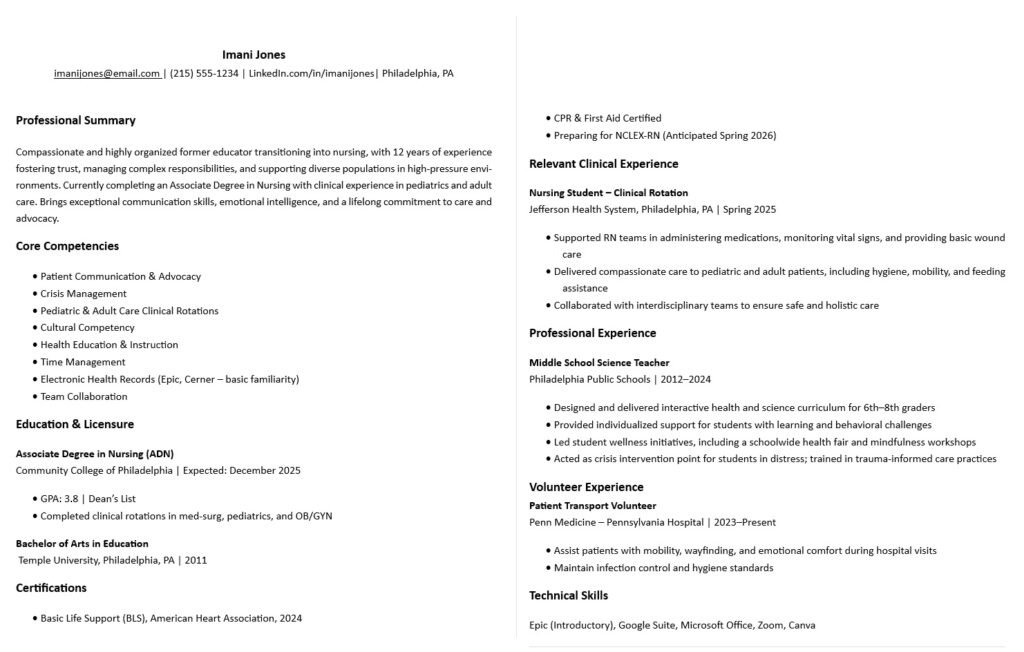How to Compose a Resume When You’re Changing Careers
Switching careers can feel like starting from scratch, especially if you’ve spent a long time in your previous field. Your old resume—filled with responsibilities and accomplishments unique to your first career—now feels mostly irrelevant. Don’t get discouraged! Employers in your new field might not care about the specific numbers you hit in your previous work, but they will love to hear about how you achieved those goals.
Adjusting your resume for a career change is all about telling your story. You want to highlight transferable skills, showcase relevant experiences, and create a clear narrative for why you’re making the move. Here’s how to approach it:
Use a Functional Resume
We outlined the three types of resumes here. A functional resume leads with your skills and expertise instead of your work timeline. While your experience will still be an important part of your story, potential employers in your new industry will be more interested in what skills you’ve learned along the way.
Start with a Strong Summary Statement
Begin with a 2–3 sentence summary that connects your past experience to your new goals. You can briefly explain the reasons for your career pivot here, especially if there’s a connection from your old sector to your new one. Show enthusiasm for your new career and quickly mention the steps you’ve already taken to prepare for this change.
Create a Skills Section
Identify the skills from your current or previous roles that align with your target job. These may include communication, project management, leadership, data analysis, etc. List those skills that are relevant to your new field. Try to highlight keywords that were used in the job description. (This is good advice for all resume writers—mirroring the language of the job posting will show that you’re paying attention, and will likely help you get through the first scan of your resume which is often automated.)
Include Education and Training
Highlight any certifications, workshops, or degrees that support your new direction, especially if you’ve pursued continuing education or online courses. You could also include any relevant freelance or volunteer work related to your new career here—or incorporate it into your timeline of work experience.
Focus on Relevant Experience
In the experience section, don’t just list responsibilities and accomplishments. Emphasize how you fulfilled your duties, rather than focusing on the numbers or achievements (those might be impressive within your old industry but could fly over the head of hiring managers in your new one). Wherever possible, try to connect your previous duties to your new career. This can be done by subtle use of language, once against using the verbiage from the job posting.
For a sample resume put together by the OWL, click here: Career Change Sample Resume.

